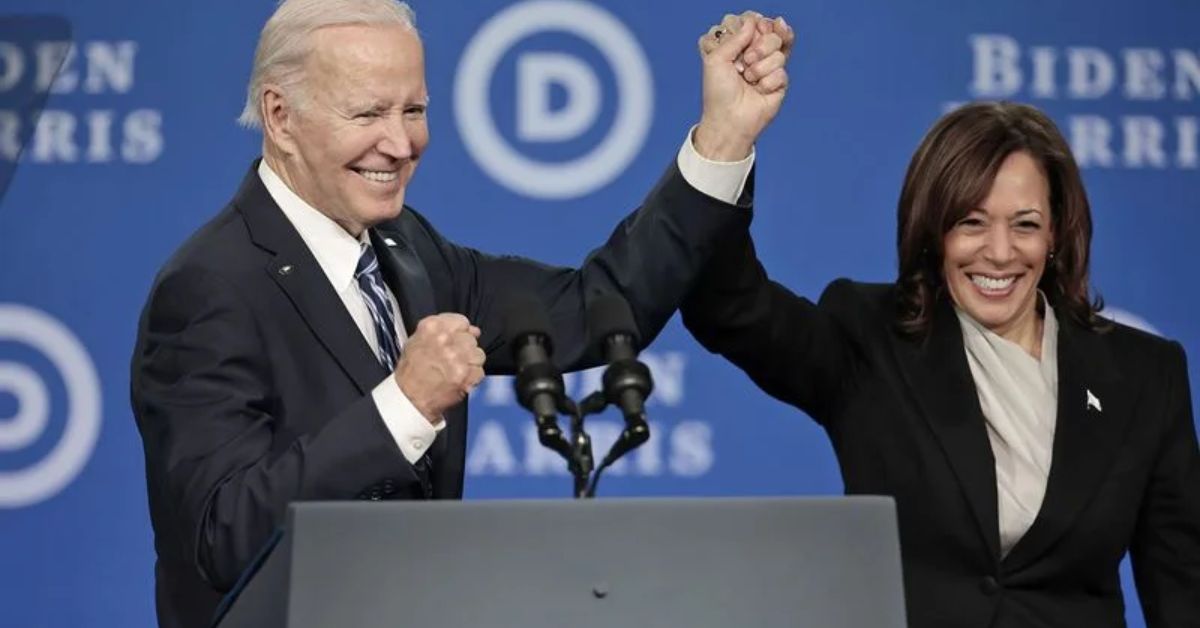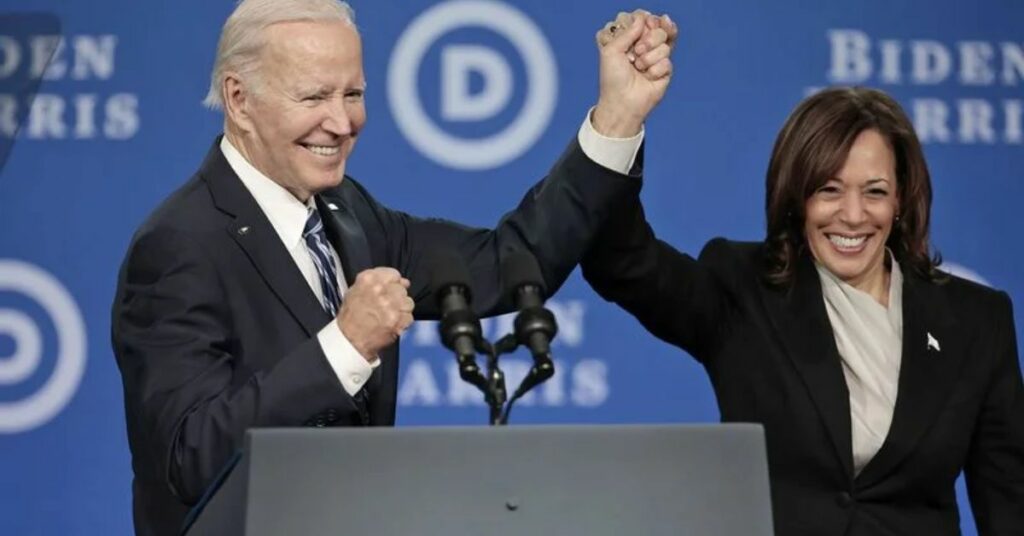Before he gives his State of the Union speech on Tuesday, President Joe Biden sees a country with a bright future. Republicans see things in a much worse light. They say that the country has a lot of debt and that Biden is mostly to blame for inflation. And the GOP now has a majority in the House and wants to stop the president.
The harder truth is that the United States is walking a tightrope, trying to keep its balance and stay out of a recession while also trying to bring inflation down. That’s because the Federal Reserve is raising interest rates while the unemployment rate is falling to a level that hasn’t been seen in almost 54 years.
Based on what he has said in the past, Biden thinks that the policies made under his watch can bring new factories to the U.S. and protect against climate change. There would be better roads, bridges, sewers, ports, and internet service. The middle class would be less worried about money. So would America’s place in the hierarchy of the world economy.
On Friday, the president said that the January jobs report was the proof. It showed that 517,000 jobs had been added and that the unemployment rate had dropped to 3.4%. This made it “clear as day” that his “chorus of critics” were wrong.
Biden said, “Here’s where we are: we have the best job growth in history.” “In short, I would say that Biden’s plan for the economy is working.”
The GOP is fighting back. They said that Biden’s spending of more than a trillion dollars was to blame for high inflation and rising prices for gas and food. Republicans want to get rid of his tax hikes and extra money for the IRS. They don’t agree with him canceling student loans and blame him for the people trying to get into the U.S. from Mexico.
Neither side gives a full picture of how the economy really is. One group of experts can look at the numbers and say that a recession is coming up. Different groups can look at different sets of numbers and find reasons to be happy. It’s hard to know what to do. Biden can be happy about the low unemployment rate even though Republicans are still upset about inflation that is getting dangerously high.
“It’s the best of times and the worst of times for the U.S. economy, to borrow a phrase,” said Mark Zandi, chief economist at Moody’s Analytics. “The economy is full of contradictions as it struggles to get beyond the massive global shocks of the pandemic and the Russian invasion of Ukraine.”
Zandi said he thinks the U.S. economy will “skirt” a recession this year, even though many economists think a downturn will happen. Gus Faucher, the chief economist at PNC Financial Services, thinks that there is a 60% chance of a recession this year. But he said that any slowdown would be “mild” because “there aren’t enough workers to lay people off, consumer balance sheets are in great shape, and the banking system is strong.”

More News:
- A Mountain Lion Attacked A 5-year-old Boy In California, But He Is Still Happy
- The Cause Of Irene Cara’s Death Was Found Out
Even if they feel fine, most people in the U.S. think the country is already in a recession.
A poll by The Associated Press-NORC Center for Public Affairs Research found that only 24% of adults think the economy is good, while 76% say things are bad. At the same time, 57% say that their own finances are in good shape. That hasn’t changed since December, but it has gotten a little worse since the beginning of the year, when 62% were happy with their finances.
The Fed is the most important force in the economy right now. Its job is to keep prices stable and inflation at about 2%. Last year, prices went up by 6.5%.
By raising its benchmark rate over the past year, the Fed has tried to slow hiring and growth in order to bring down inflation. In 2022, when Biden gave the State of the Union Address, the Fed’s benchmark rate was really close to zero. It’s now over 4.5%, which is the fastest rise in 40 years, and Fed Chair Jerome Powell said on Wednesday that it’s likely to go up even more.
Powell told reporters after the last Fed board meeting, “The economy doesn’t work for anyone if prices aren’t stable.”
The Fed rate increases mark a major reversal in how the economy operates.
Since the financial crisis of 2008, the U.S. central bank has kept its benchmark rate close to all-time lows in order to get growth back on track. This made it easier for tech start-ups because investors expected them to focus on growth rather than profits when the money was cheap. Mortgage and car loan rates were so low for so long that people got used to them.
The past year’s rate jumps produced a sudden whiplash. The stock market fell. Google and Microsoft, two of the most well-known tech companies, have recently announced layoffs.
Even as computer chip companies started building new plants and credited Biden’s policies, the world economy went from having too few semiconductors to having too many. First, mortgage rates went up to over 7%, then they went down to 6% last week. Because of the big increase, many people who wanted to buy a home could no longer afford the monthly payments, so they stayed in rentals.
Glenn Kelman, the CEO of the real estate company Redfin, said that the housing market is stronger than many people thought it would be. But the years of low rates made the difference between generations even worse. As the value of their homes went up, baby boomers got richer. But when rates went up when more millennials wanted to buy, they were priced out of the market.
“A generation ago, boomers owned 21% of U.S. wealth,” Kelman said. “For millennials, that number is 7%. They’re still on the outside looking in.”
Carl Tannenbaum, the chief economist for Northern Trust, is surprised that the rate increases have hurt housing but not employment. Traditional models assumed that lowering inflation would lead to job losses by default. But when he talks to businesses, most of them don’t want to let their employees go because it was hard for them to find skilled workers during the pandemic.
“Because the supply of labor has been so starved for the past two years, firms are holding on to who they have,” Tannenbaum said. “The prevailing wisdom is if we have a recession it’s going to be shallow. Firms are going to want to be ready to go.” Even though Biden says his job is to give Americans confidence, he might find it hard to do so in an economy where few things are certain.
In 2020, when the pandemic hit, the government helped so much that a crash on the stock market turned into a rally. Biden tried to reassure the country in 2021 that rising prices were just a short-term problem, but many people saw his first two years in office through the lens of inflation. People thought that higher interest rates would eventually lead to layoffs and higher unemployment, but hiring has stayed strong, which shows that the economy isn’t doing what people usually expect.
If the economy is a problem for Biden, it could be that no one knows what will happen next.
“We are in a situation with a lot of uncertainty,” “Gregory Daco, the head of economics at EY-Parthenon, said this.” It’s hard to get a good feel for the economy when we keep hearing different things about it.
If you enjoyed reading this post, please share your feedback with us in the comments box below. In addition, don’t forget to check back on our website News Conduct frequently for the most recent updates.




